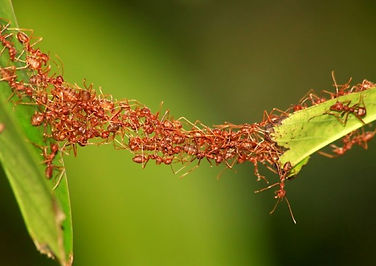Ant
Scientific Name: Formicidae
Ants are a common garden insect that are beneficial to your garden! However, in large colonies they can be a nuisance.
How to Identify:
-
Often black in colour but can be dark red, brown, or even tan.
-
Have three sets of legs with distinct body divisions and antennae.
-
Some ants may have wings, these are called swarmers and their wings allow them to move to a new location.
Benefits:
-
Due to their tunnels, ants can aerate the soil and help move nutrients through your garden.
-
They scavenge decaying insects and plant material which provides soil with more nutrients and richness.
-
Ants can also distribute seeds to help with plant abundance and location.
-
Some ants eat certain pest insects such as fleas.
Costs:
-
Tunneling too close to plants can cause them to de-root leaving bald patches in your garden.
-
Ants are attracted to nectar and honeydew and will form an alliance with harmful insects such as aphids which provide them with sap but cause a lot of destruction.
-
Large numbers of ants will also eat plant buds and leaves in your garden.
How to control ants in your garden:
-
Use natural deterrents around ant hills such as chilli peppers, mint, cinnamon, salt, and pepper.
-
Essential oils (such as clove or tea tree oil) can be sprayed on soils and are botanical scents which interfere with ant’s scent trails.
-
Natural Citrus Peel Spray: add citrus peels to a pot of ½ water, and ½ vinegar. Heat until steaming and steep the mixture over night, place in spray bottle to use around ant hills to repel ants.
How this relates to conservation:
-
Ants move seeds from plants to new locations, which increases the quantity and diversity of plants in a given area. By increasing the types of plants more nutrients are introduced into the soil, which can provide an increase in resource services for humans (such as agriculture).



